About SBME’S Symposium
Join us at our Symposium on June 4th, 2024 to learn about the latest cutting-edge research in the biomedical sector that is improving health-care outcomes. Engage with research from molecular and cellular realms to the macro level of human physiology. This community event invites students, researchers, industry, and other biomedical engineering enthusiasts to participate in an exciting day of research presentations and networking.
(RSVP’s are now closed.)
Tuesday, June 4 from 9:00 am to 4:30 pm
UBC AMS Nest – Great Hall
6133 University Blvd
Vancouver, BC Canada V6T 1Z1
This Year’s Symposium
This year, our focus is on “Integrated Health” — exploring the intricate relationship between the environment and human well-being, and how biomedical research can contribute to solutions. We’re thrilled to present a dynamic lineup of talks, including a keynote by Dr. George Church, a renowned geneticist and the founder of Synthetic Biology at the Wyss Institute, Harvard University.
Our panel of experts will delve into the impact of climate change on human biology and discuss how biomedical engineering technology can mitigate its effects. Don’t miss out on the opportunity to engage with trainee research during our lunch and poster session.
This inclusive event welcomes students, researchers, industry professionals, and biomedical engineering enthusiasts alike to a day filled with insightful presentations and valuable networking opportunities. Be sure to RSVP by May 28th to secure your spot and reserve your lunch!
OPPORTUNITIES TO ENGAGE
Submit a Poster Abstract
Trainees from SBME and beyond are invited to present their research to a wide audience of researchers and industry partners during our lunchtime poster session. Our panel of judges will select the top posters to receive cash prizes which will announced during the awards session. To participate in the poster session, trainees must submit their poster abstract using the link below. Trainees can also indicate in their submission if they would like their poster abstract to be considered for a Trainee Talk.
Poster Submission Deadline: April 30
Amgen Pitch Competition
Calling students and researchers! Create a team and present your unique and innovative ideas for solutions or technologies that can address real-world problems in the field of biotechnology, life sciences and biomedical engineering. The winning team will receive $5000, the second-place team will receive $3000, and the third-place team will receive $1000. The award money must be used to cover the expenses of attending national or international conferences chosen by the winners and related to their field of research.
(Abstract submissions are now closed.)
Symposium Agenda
9:00 am | Welcome |
9:10 am | Amgen Pitch Competition |
10:10 am | Dr. Molly Shoichet |
10:50 am | Student Talk |
11:00 am | Invited Talk: Dr. Mehmet Kurt |
11:40 am | Trainee Poster Flash Talks |
12:00 pm | Lunch & Poster Session |
2:00 pm | Panel: The Impact of Climate Change on Human Biology Moderator: Dr. Anna Blakney Panelists: Dr. Ninan Abraham; Dr. Madjid Mohseni; Enzo Giocopino |
2:45 pm | Plenary Talk: Dr. Rangarajan Sampath |
3:15 pm | Keynote: Dr. George Church |
4:00 pm | Awards |
DR. CONNIE EAVES MEMORIAL LECTURESHIP & AWARD
Dr. Connie Eaves was a distinguished researcher known for her unwavering commitment to scientific inquiry, pursuit of research excellence, and advocacy and mentorship for aspiring young scientists. Dr. Eaves exemplified remarkable passion and drive in her research endeavours and exhibited a profound dedication to mentorship. Her legacy serves as a beacon of inspiration, particularly for women in biomedical engineering. To commemorate the remarkable achievements of Dr. Connie Eaves in both her life and research, SBME has created two memorial awards:
The Dr. Connie Eaves Memorial Lectureship for Women in Biomedical Engineering celebrates distinguished researchers who have made significant contributions to the BME field. This year’s recipient is Dr. Molly Shoichet, a cell and tissue engineering professor and Canada Research Chair at the University of Toronto. Don’t miss Dr. Shoichet’s lecture titled “Modeling Cancer for Target and Drug Discovery” at this year’s Symposium.
The Dr. Connie Eaves Memorial Student Award for Women in Biomedical Engineering will be awarded through nomination process and will celebrate an SBME graduate student whose research embodies Dr. Eaves’ dedication to scientific rigour, mentorship, and impact on society. The recipient will $2,000 and will give a 10-minute presentation at this year’s Symposium.
SPEAKERS
Keynote Speaker: Dr. George Church
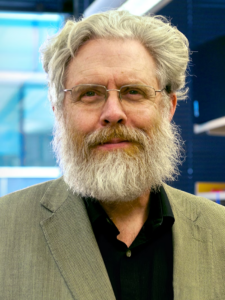
Our keynote speaker this year is Dr. George Church, geneticist and founder of Synthetic Biology at Wyss Institute, Harvard University.
PLENARY SPEAKER: DR. RANGARAJAN SAMPATH
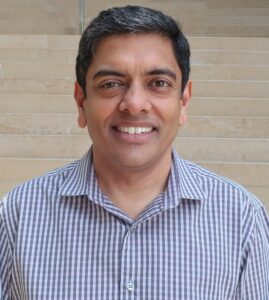
AI, data analytics, and automation are set to transform the diagnostics lab of the future
Abstract: Some of the critical challenges in healthcare and diagnostics that affect the quality, efficiency, and access to care include accuracy and early detection of diseases, availability and affordability of healthcare services, labor shortages of qualified professionals, and data overload and paralysis. These challenges require innovative solutions that can improve the outcomes and costs of treatment, as well as the delivery and safety of care. AI-powered diagnostics can improve accuracy and identify diseases earlier by analyzing vast datasets. Personalized medicine can be achieved by analyzing a patient’s unique medical history and genetic data. Automated lab processes and AI-assisted analysis can significantly reduce turnaround times for diagnostic tests. Robotic lab automation can improve efficiency and reduce the risk of human error. Intelligent robots can make decisions based on information they see, increasing efficiency and providing real-time results. Such systems can predict disease outbreaks, identify high-risk populations, and contribute to epidemiological research. AI-powered lab systems in combination with telemedicine could expand access to advanced diagnostics in underserved areas.
Bio: Dr. Rangarajan Sampath, a seasoned professional with over three decades of experience, is celebrated for his visionary leadership in medical technologies, diagnostics, and digital health. Currently serving as the Senior Vice President at Siemens Healthineers, he drives innovation in oncology, neurology, and infectious diseases. Previously, as the Chief Scientific Officer at the Foundation for Innovative New Diagnostics (FIND), he led research and development efforts to bring advanced diagnostics to low- and middle-income countries. Prior to that, during his tenure at Abbott’s Ibis Division, he played a pivotal role in advancing infectious disease diagnostics, co-founding Ibis Biosciences and contributing to the invention of the IRIDICA platform. Dr. Sampath’s contributions extend beyond industry, with over 100 publications and more than 40 issued patents in infectious disease diagnostics. He is actively involved in initiatives such as the Sepsis Alliance, serving on its board, and frequently contributes his expertise to public forums on infectious diseases and healthcare. His research interests encompass a wide range of areas including sepsis, antimicrobial resistance, pathogen discovery, and biothreat detection.
Invited Talk: Dr. Mehmet Kurt
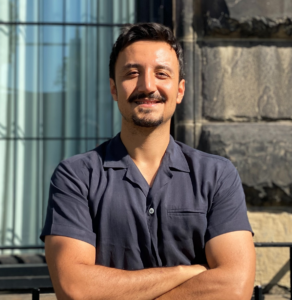
Brain in Motion: A deep dive into brain biomechanics with advanced neuroimaging and computer vision
Abstract: The human brain is the continuous subject of extensive investigation aimed at understanding its behavior and function. Despite an overwhelming interest and major research initiatives on how our brain operates, comparatively little is known about how it functions at the mechanical level. Recent findings have directly linked major brain development, mechanisms, and diseases to the mechanical response of the brain both at the cellular and tissue levels. Despite clear evidence that mechanical factors play an important role in regulating brain activity, current research efforts focus mainly on the biochemical or electrophysiological activity of the brain, mostly due to the difficulty of probing the brain physically.
In this talk, I will present how a combination of novel computational, deep learning, and neuroimaging methods can provide insights into the world of brain biomechanics. I will introduce novel neuroimaging tools that can measure and track how the brain moves inside the skull, even during physiological processes. I will demonstrate how studying the motion of the brain in vivo is useful in several important clinical applications; enabling earlier diagnosis and intervention of brain pathologies such as traumatic brain injury, hydrocephalus, Chiari Malformation, Alzheimer’s disease, and other degenerative diseases.
Bio: Prof. Mehmet Kurt is the director of Kurtlab (www.kurtlab.com) and an Associate Professor at the Department of Mechanical Engineering (and by courtesy, Radiology and Neuroscience) at the University of Washington. His primary research area of interest is brain biomechanics and neuromechanics imaging. He received his Ph.D. in Mechanical Science and Engineering from the University of Illinois at Urbana-Champaign in 2014 on developing novel nonlinear system identification methods. He was a postdoctoral scholar in the Departments of Bioengineering and Radiology at Stanford University from 2014-2017. His awards include NSF CAREER Award (2022), Fortune Magazine’s 40 under 40 list in Turkey (2021), Provost’s Early Career Award for Research Excellence (2020), NSF Vizzies Best Scientific Visualization Award, People’s Choice (2018), Annals of Biomedical Engineering “Editor’s Choice Award” (2017), Thrasher Research Foundation Early Career Award (2015), and the Thomas Bernard Hall Prize for the Best Paper of the Year (2011). His research has been highlighted in various media outlets such as Reuters, Newsweek, CBS News and Washington Post. His research group is currently sponsored by multiple grants from NSF, NIH and DoD. Dr. Kurt is the co-director of the STEM Village, an organization dedicated to increase the visibility of LGBTQ+ students in STEM. He organizes various activities for increasing LGBTQ+ visibility in STEM and currently manages the Peer Review for Inclusion, Diversity, and Equity (PRIDE) program.
Dr. Connie Eaves Memorial Lectureship: Dr. Molly Shoichet
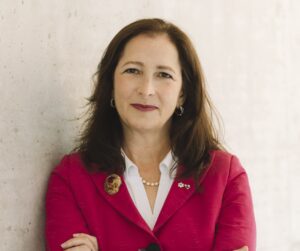
Modeling Cancer for Target and Drug Discovery
Abstract: Drug discovery in cancer typically involves screening cells grown on 2-dimensional, hard plastic dishes; however, since human tissue is neither 2D nor plastic, this environment does not sufficiently emulate human disease. To overcome this limitation, we designed hydrogels for 3-dimensional cell culture with the goal of screening cells in an environment that mimics that of native tissue. With 3D cell culture, we gain an understanding of both cell invasion and cell viability, thereby providing insights that are inherently limited with traditional 2D cell culture. To achieve a suitable environment, we synthesized hyaluronan-based hydrogels because hyaluronan is often over-expressed in invasive tumours including those in the breast, brain and lung.
To facilitate cell invasion and remodelling of the matrix, the hydrogels are crosslinked with peptides that can be degraded by matrix metalloproteinases (MMPs) secreted by the cells. We use either Diels-Alder or oxime click chemistry to crosslink our hydrogels while also including polymers that provide viscoelasticity, thereby enabling cells to remodel the 3D hydrogel environment. Thus, cells can invade into the hydrogel by either actively degrading it enzymatically or through ameboid movement. To enhance cell adhesion, the hydrogels are modified with proteins and/or peptides; to facilitate cell invasion, the hydrogels are modified with growth factor concentration gradients. Importantly, only diseased, and not healthy, cells migrate into the hydrogels.
Using well-defined hyaluronan-based hydrogels, we investigate invasion in the context of breast cancer, brain cancer, lung cancer cell and their response to different therapeutic treatments. In the context of Hodgkin’s lymphoma, we investigate macrophage invasion and whether drug treatments can change polarization and invasion. Ultimately, our goal is to identify new drugs for the treatment of cancer.
Acknowledgments: We are grateful to NSERC, CIHR and Laugh out LAM Foundation for funding. We thank our collaborators, Dr. William Stanford (OHRI), Dr. Peter Dirks (HSC), Dr. Dave Cescon (PMH), Dr. Stephen Juvet (UHN), Dr. Rob Laister (PMH), Dr. John Kuruvilla (PMH), and Dr. Stephane Angers (UofT).
Bio: Molly S. Shoichet is University Professor and Michael E Charles Professor in Chemical Engineering at the University of Toronto. She served as Ontario’s first Chief Scientist and has been awarded numerous honours including Fellow, Royal Society (UK), Fellow, National Academy of Engineering (USA), and NSERC Herzberg Gold Medal – Canada’s highest award for science/engineering, among many others. Dr. Shoichet’s research focuses on innovative 3D cell culture models for drug discovery, and drug and cell delivery strategies to overcome central nervous system-related pathologies. She is a prolific entrepreneur, co-founding multiple spin-off companies, and a passionate advocate for translational research and science communication.
Dr. Connie Eaves Memorial Student Award: Laura Stankiewicz
Lessons from the human thymus: sex differences, T cell receptors, & insights into PSC-T cell culture
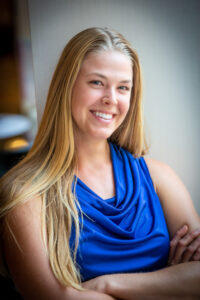
Laura Stankiewicz Biography: Laura is a senior PhD candidate interested in understanding how the human immune system develops and changes throughout the human lifespan. In her research she uses single cell multi-omic sequencing and multidimensional imaging to investigate the mechanisms guiding T cell development in the human thymus, with particular focuses on sex differences in early postnatal thymus and the mechanisms guiding lineage bifurcation of CD4 and CD8 T cells. Recently, Laura has been exploring how the T cell repertoire contributes to CD4 vs. CD8 lineage bifurcation, as well as how T cell repertoire selection differs between individuals.
Impacts of Climate Change on Human Biology Panel
Dr. Anna Blakney (Moderator)

Anna Blakney (She/Her), is an Assistant Professor in the Michael Smith Laboratories and School of Biomedical Engineering at UBC. She received her Bachelor of Science in Chemical & Biological Engineering from the University of Colorado at Boulder, and her PhD in Bioengineering from the University of Washington. She completed a postdoctoral fellowship at Imperial College London on the development of molecular and biomaterial engineering strategies for delivery of self-amplifying RNA. Her lab uses bioengineering, molecular biology and immunology approaches to develop the next generation of RNA vaccines and therapies. She is also a passionate science communicator and runs a TikTok channel dedicated to educating the public about RNA biotechnology, which now has 250,000 followers and 18M views.
DR. NINAN ABRAHAM
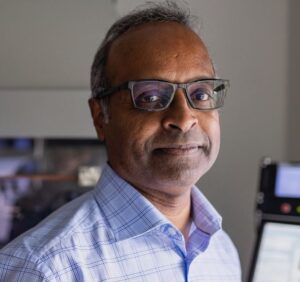
Ninan Abraham (He/His), is a Professor in the UBC Department of Microbiology and Immunology and the Department of Zoology and the former Associate Dean, Equity, Diversity and Inclusion at the UBC Faculty of Science. His research focused on the regulatory points in immune cell control in airway immunity to pathogens and lung cancer. While serving as Associate Dean, he had responsibility for equity, diversity and inclusion initiatives and elevated use of disaggregated demographics to unveil differential barriers for racialized minorities in faculty hiring. He has advised CIHR, NSERC and NRC policymakers on best practices. His interests now include health equity for community benefit and Science and Technology Studies. He served on the UBC President’s Anti-Racism and Inclusive Excellence Task Force and is the current Director of EDI&I for CoVaRR-Net, a national network of COVID researchers.
DR. MADJID MOHSENI
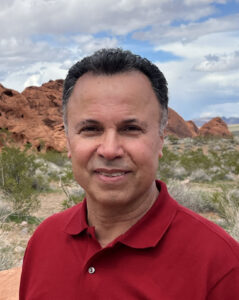
Madjid Mohseni (He/His), a Professor in the Department of Chemical and Biological Engineering at UBC, is an expert in drinking water quality and treatment. His research involves laboratory scale development and investigation, as well as field evaluation of the technologies under real operating conditions at partner community sites in rural and Indigenous communities.
Madjid is the Scientific Director of “Community Circle on Scaling Business Innovation for Humanity”, a non-profit organization funded by Innovation, Science and Economic Development Canada (ISED), and partners from industry, communities, government and NGOs, focusing on achieving socioeconomically and technologically sustainable outcomes in water health and well-being for Indigenous and rural communities.
ENZO GIACOPINO
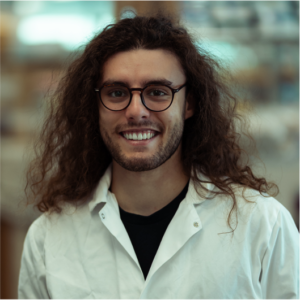
Enzo Giacopino (He/His) is a 2nd year PhD student (Shakiba lab) working on human pluripotent stem cells dynamics in organoid differenciation; but also a profound interest on the climate crisis and its relations to science.
Michelle Zinck

Michelle Zinck (she/her), is Dené from Fond du Lac Denésułiné First Nation, located on the north shore of Lake Athabasca in Treaty 8 Territory. Currently completing her Master’s thesis research in Indigenous Studies at the University of Saskatchewan, BA in English and Indigenous Studies. She is in the role of Equity, Diversity, Inclusion & Indigeneity (EDII) Manager of the CoVaRR-Net at the University of British Columbia. Environmental Health representative on the Global Youth Steering Committee with the Children and Youth Major Group (CYMG) to the United Nations Environment Program. Michelle is a Land-Based Health Researcher with expertise grounded in ethical community engagement and co-developing land-based initiatives to address the effects of global anthropogenic changes on health. Her research and initiatives are centred on decolonizing health, environmental health, land-based healing, food systems, and Indigenous data sovereignty.
Sponsorship Opportunities
Interested in sponsoring a session at this year’s Symposium? We’d be happy to discuss sponsorship opportunities with you!
Danielle Walker
Strategic Partnerships Manager,
School of Biomedical Engineering
danielle.walker@ubc.ca
View our current sponsors below.